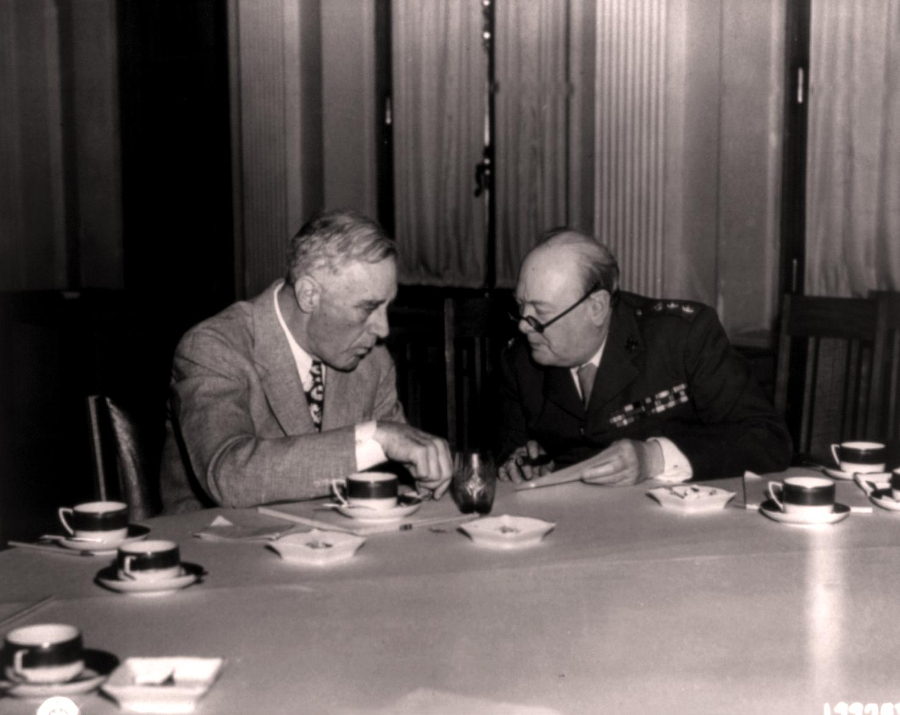How united were the Big Three at the Yalta Conference in 1945?

Yalta Conference of Allied leaders, 4-11 February 1945. Seated left to right: Churchill, FD Roosevelt and Stalin with their respective foreign ministers behind them, Eden, Stettinius and Molotov. (Photo by: Photo 12/UIG via Getty Images)
In February 1945 the leaders of the USA, the USSR and the United Kingdom – the ‘Big Three’ – met at Yalta to discuss issues which would shape the world to come. The Big Three were allies against Germany and her ally Japan. It was clear by early 1945 that they were winning the war and they were beginning to think about the settlements which would follow.
They met and talked from 4-11 February, accompanied by an army of officials. When they emerged from the talks they put on a perfect show of unity. US President Roosevelt reported that:
Days were spent in discussing momentous matters, and we argued freely and frankly across the table. But at the end on every point unanimous agreement was reached. And more important even than the agreement of words, I may say that we achieved a unity of thought and a way of getting along together.
But is that the full story of Yalta? The issues over which they ‘argued freely’ included: what to do with Germany after it was defeated; punishing war criminals; ensuring the swiftest possible defeat of Germany’s ally Japan; the setting up of a United Nations Organisation; the future of countries liberated from Nazi rule, in particular the future of Poland.
In this investigation we are going to focus on just one of these issues, the future of Poland, and see what this can tell us about how far the Big Three really did share ‘unity of thought and a way of getting along together’.
Your challenge
We have a box of sources from the Churchill Archive for you to investigate.
- Your challenge will be to study the sources in the Source Box and use them to explain how far the decision on Poland made at the Yalta conference showed unity or disunity between Churchill, Roosevelt and Stalin.
- As you work through the sources try to assess any change or continuity in the relationships between the Big Three. Think about the use of language to show how the writers are feeling about each other.
- Your teacher will be able to help you with a recording framework and suggestions on how to present your work.
➜ Background information
➜ The sources
➜ Notes for teachers

Yalta Conference, February 4-11 1945. President Franklin D. Roosevelt and Prime Minister Winston Churchill discuss Europe’s post-war reorganization at Livadia Palace near Yalta, Crimea. Office of War Information Photograph. (2016/01/29).
